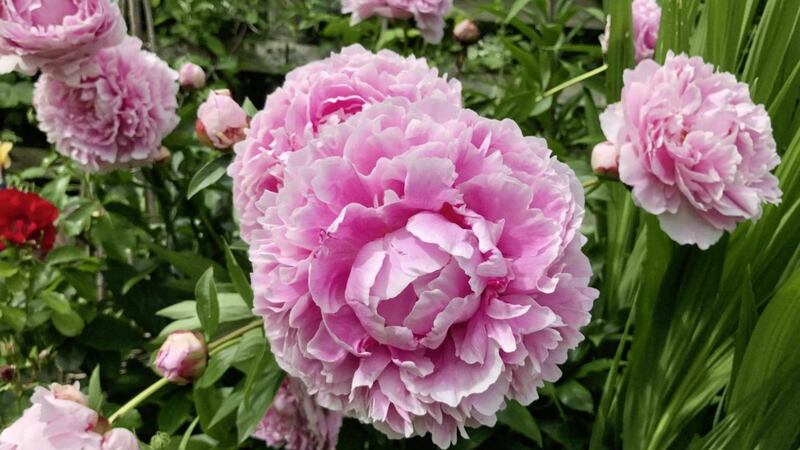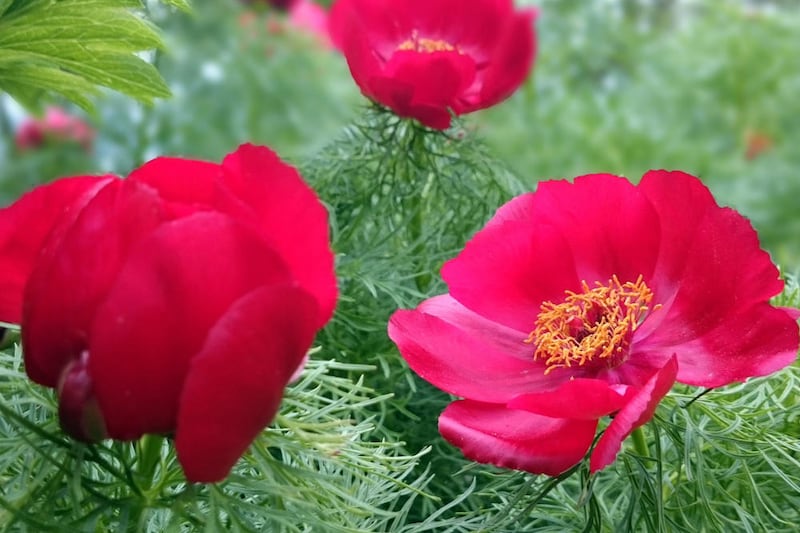THE dazzling flowers of peonies are apparently Meghan Markle's favourites. Here's how to grow these royal showstoppers in your own garden.
:: How easy are they to grow?
Pretty easy, in the right conditions. The pot-grown peonies you find in garden centres can be planted at any time of year, while bare-rooted types are ideally planted in October.
They prefer heavier soil in a sunny or slightly shaded spot, and add plenty of organic matter to the planting hole before you start. Don't let them get waterlogged, though. Add horticultural grit if the soil is extremely heavy.
Don't plant them too deeply – the soil should just cover the topmost tuberous roots. Mulch them lightly in February or March with potash-rich wood ash to increase flower production. If you want huge flowers (but less of them), debud the sideshoots in April or May with a sharp knife.
:: Will they flower the first year?
You might be lucky, but peonies don't like being moved or replanted, so it may take a year or two for them to settle in before flowering. If you are transplanting existing plants, do it in early autumn or spring, keeping the rootball as intact as possible.
:: How long will the flowers last?
That largely depends on the weather. Vast bowls of petals emerge from thick stalks above the pretty foliage in late spring and early summer, which will need supporting with a stake or frame to stop them falling over in the wind.
The flowers of herbaceous peonies are shortlived, lasting little more than a week or two, and if it rains they won't last that long, as wet weather tends to make them flop, particularly the heavy, double flowered forms.
:: Any recommended varieties?
If you want huge pink fragrant double flowers, try Paeonia lactiflora 'Sarah Bernhardt', which is favoured by commercial cut flower producers. Familiar favourites include P. officinalis 'Rubra Plena', a deep red, frilly double cottage variety, or if you want a larger tree peony, consider P. ludlowii.




